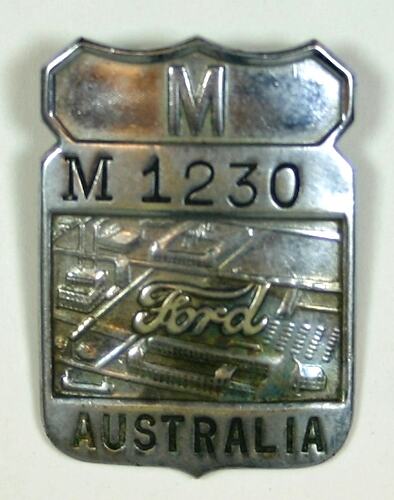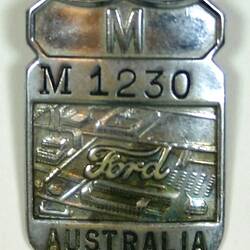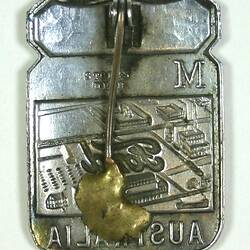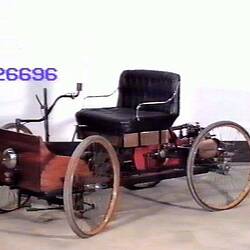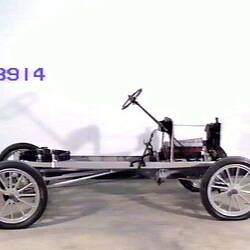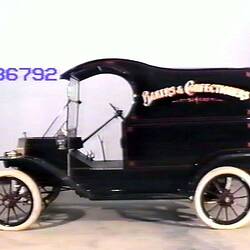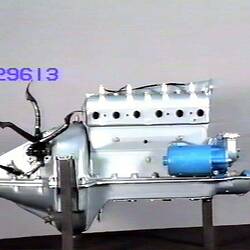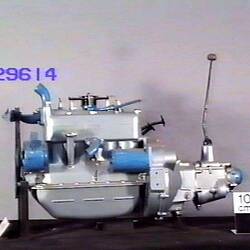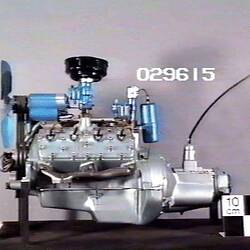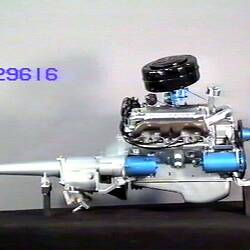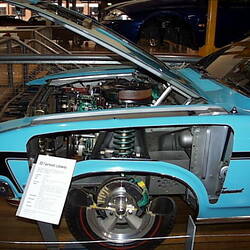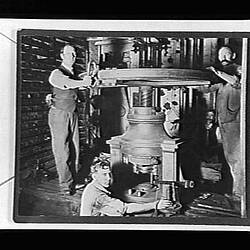Summary
Metal employee identification badge by Stokes, Melbourne, issued by Ford, Australia. Believed to have been issued to an employee at the Geelong manufacturing plant. Assuming the badges were numbered consecutively, the number stamped on this exmaple suggests that it was probably issued around the mid 1930s.
The first imported Ford motor cars sold in Australia arrived in 1904, but it was not until after the Tarrant Motor & Engineering Co, Melbourne, was signed up as the first Australian agents for the Model T Ford in 1909, that Ford sales in Australia began to take off. By 1914, the Model T Ford was the most popular selling motor car in Australia with some 1,142 new registrations recorded. Import tarrif changes and shortages of shipping cargo space during the First World War saw Tarrant's and the principal distributors in other states establish motor body building plants which produced locally-made bodies that were fitted to imported Ford engine and chassis units.
The Ford Motor Company of Australia Pty Ltd was incorporated in Victoria in March 1925, as a wholly owned subsidiary of the Ford Motor Company of Canada Limited, which since 1905 had controlled export sales for the Ford Motor Company of USA to all British Colonies and Dominions. Shortly afterwards it was announced that Geelong, Victoria, would be the location of the company's Australian headquarters and the first Australian motor vehicle manufacturing and assembly plant established by a major overseas automotive manufacturer. Assembly of Model T Fords at Geelong commenced in a converted woolstore in July 1925, while a modern purpose-built factory was constructed on the northern shore of Corio Bay, at a cost of £890,000. By December 1925, the Geelong motor body plant was employing 700 workers, while the adjacent assembly plant (which fitted locally-made bodies to imported engine-transmission and chassis units), was employing another 120. Additional interstate assembly plants were established in Sydney, Brisbane and Adelaide in 1926, and in Perth in 1930.
In 1928, the Geelong factory switched to Model A production, followed by the Ford V8 in 1932, and by 1934 was also producing the Ford utility or 'ute' invented at Geelong by the Ford engineer Lewis Bandt. Following a downturn in sales during the early 1930s depression, production at Geelong was increased to 2,000 bodies at day by 1935, with 1,300 workers employed. Further extensions to the Geelong plant during World War II saw many of the transmission and mechanical parts also made locally, with engine manufacture also later added, so that by 1955 Ford at 4,000 employees at Geelong.
In 1960, Ford Australia introduced the US-designed but almost wholly Australian-made Falcon, which soon became the local company's most popular product. In 1960, Ford opened a new corporate headquarters and assembly plant at Broadmeadows on Melbourne's northern outskirts, with the Geelong plant continuing to produce engines, components and bodies. From the release of the XA model in 1972, all Falcons have been fully Australian designed.
Physical Description
Rectangular shield-shaped pressed metal badge with pin soldered to back. Front depicts an aerial view of a factory with the 'Ford' logo embossed over it.
More Information
-
Collecting Areas
-
Acquisition Information
Purchase
-
Manufacturer
-
Issued By
-
Inscriptions
Stamped on front: 'M M1230 Ford AUSTRALIA' Stamped on back: 'STOKES MELB'
-
Brand Names
-
Classification
Manufacturing & industry, Motor vehicles, Workers' identification
-
Category
-
Discipline
-
Type of item
-
Overall Dimensions
31 mm (Width), 44 mm (Height)
-
References
Darwin, Norm, 'The History of Ford in Australia', Eddie Ford Publications Pty Ltd, Newstead, Victoria, 1986. Winser, Keith, 'The Story of Australian Motoring', Motor Manual, Melbourne, circa 1955. The Argus, 2 Jul 1925, p.14, 'Ford Factories. Work At Geelong.' The West Australian, 17 Sep 1925, p.4, 'Ford Motor Company. Geelong Officials Interviewed.' The Sydney Morning Herald, 8 Jun 1935, p.15, 'Motor Factories. Sydney And Geelong.' Wikipedia, Ford Motor Company of Australia, [Link 1] accessed 14/09/2010.
-
Keywords
Automotive Industry, Badges, Manufacturing, Motor Cars, Motor Vehicle Manufacturing, Working Life
